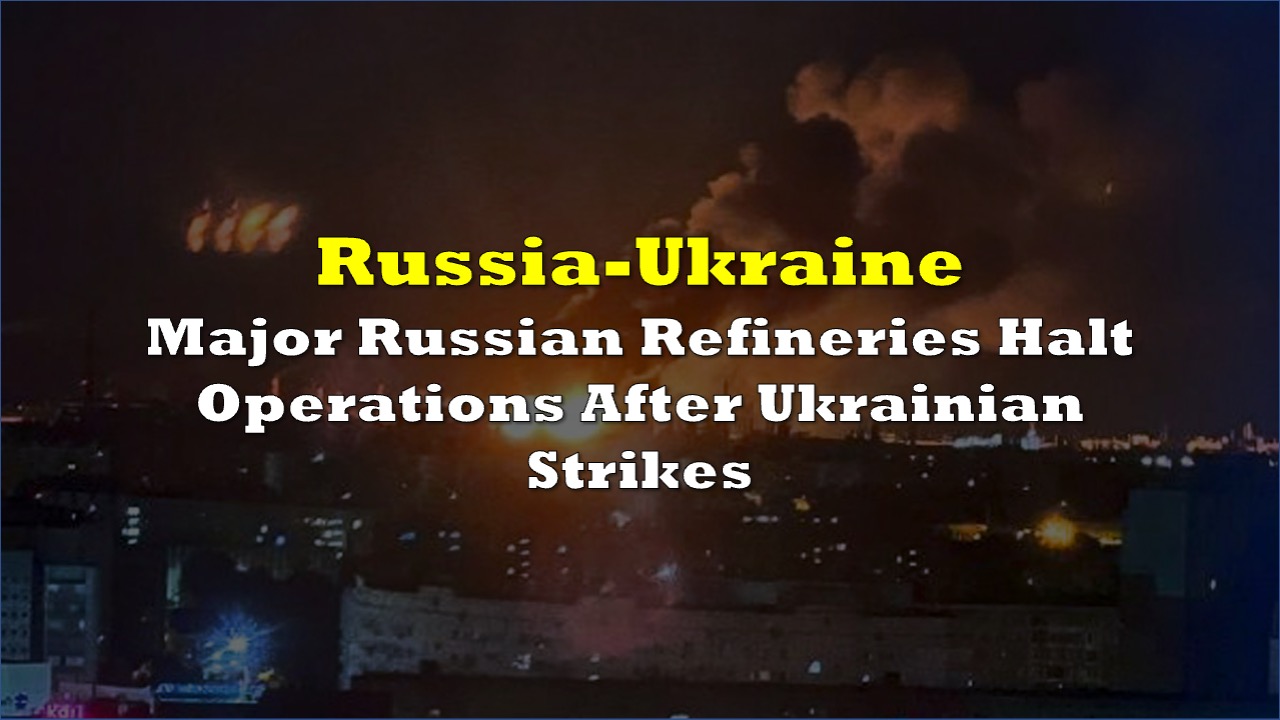Ukrainian forces launched drone strikes on two major Russian oil refineries in mid-August, causing fires and production halts at facilities that supply fuel to Moscow’s military, officials confirmed.
The strikes targeted the Lukoil Volgograd refinery on August 14 and the Rosneft Syzran refinery in a separate recent attack, marking the latest escalation in Ukraine’s campaign against Russian energy infrastructure.
Both Lukoil's Volgograd refinery and Rosneft's Syzran refinery has halted production after Ukrainian strikes destroyed vital parts of the production lines. (13th and 15th August) pic.twitter.com/VGhJwHnZFy
— Def Mon (@DefMon3) August 18, 2025
Ukraine’s General Staff confirmed the Volgograd attack was carried out by the country’s Unmanned Systems Forces and military intelligence in cooperation with other defense units. The strike caused “severe fires” at the facility, which has an annual processing capacity exceeding 15 million tons of oil — representing approximately 5.6% of Russia’s total refining output, according to Ukrainian military officials.
Reuters reported Volgograd refinery shut down.
— Evgen Istrebin 🇺🇦 (@evgen1232007) August 18, 2025
CDU-1, CDU-5, CDU-6 disabled
The plant was reduced to JUNK. The plant was simply DESTROYED pic.twitter.com/FKg56p2OLP
The General Staff noted that the refinery produces diesel, gasoline, and aviation fuel that are crucial for Russian military logistics operations.
Regional Governor Andrey Bocharov acknowledged the attack but blamed the fires on “falling debris” from downed drones that caused oil products to spill and ignite. Russian officials reported no immediate casualties.
The Syzran facility, located about 500 miles from the Ukrainian border, was struck in a separate attack around the same timeframe. The Rosneft-owned refinery has an annual crude distillation capacity of 8.5 million tons and produces aviation fuel among other petroleum products.
Russian regional governor Vyacheslav Fedorishchev said air defenses shot down 13 drones during what he called a “mass drone attack” on the Samara region, though he did not directly acknowledge damage at the plant.
The attacks are part of Ukraine’s intensified summer campaign targeting Russian oil infrastructure. According to reports citing industry sources and Reuters data, disruptions from drone strikes had reduced nearly 10% of Russian refining throughput by early August.
This marks another in a series of attacks on the Volgograd facility, which stands as the Southern Federal District’s biggest petroleum products producer. The Lukoil-owned plant faced similar drone strikes earlier this year, including attacks in January, February, and March.
A second fire broke out at the Volgograd facility on August 16, two days after the initial strike, though it remains unclear whether this was connected to the attack or occurred during repair operations.
The escalating strikes on Russian energy targets come as Ukraine has significantly expanded its long-range drone capabilities. When Russia launched its full-scale invasion in 2022, Ukraine lacked the capability to strike deep into Russian territory. Since then, Ukrainian forces have developed an extensive arsenal of long-range drones that can reach targets far inside Russia.
Oil refineries have become frequent targets because they fund and fuel Russia’s war machine, Ukrainian officials say. The General Staff emphasized that attacks on strategic infrastructure that impact Russian military operations will continue.
Russia has responded with its own drone strikes on Ukrainian territory. On the night following the Volgograd attack, Russian forces launched nearly 180 drones across multiple Ukrainian regions, according to Ukrainian military officials.
Information for this story was found via the sources and companies mentioned. The author has no securities or affiliations related to the organizations discussed. Not a recommendation to buy or sell. Always do additional research and consult a professional before purchasing a security. The author holds no licenses.









